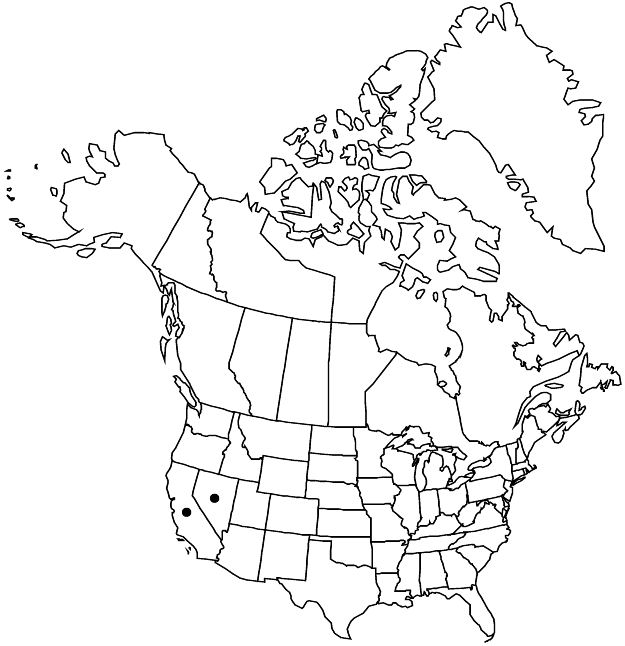Mentzelia polita
Bot. Gaz. 47: 427. 1909.
Plants perennial, bushlike, with subterranean caudices. Stems multiple, erect, zigzag or straight; branches along entire stem, distal longest, antrorse, straight to upcurved; glabrescent, smooth to touch. Leaves: blade 16–84 × 2.2–10.6 mm, widest intersinus distance 2.2–7 mm; proximal oblanceolate, margins usually entire, occasionally dentate, teeth 0–6(–14), perpendicular to leaf axis, 1–2 mm; distal elliptic, lanceolate, or linear, base not clasping, margins usually entire, rarely dentate, teeth 0(–6), perpendicular to leaf axis, 0.6–2 mm; abaxial surface with complex grappling-hook and infrequently needlelike trichomes, adaxial surface with needlelike trichomes. Bracts: margins entire. Flowers: petals light to golden yellow, 7.8–11(–14.2) × 1.9–2.8(–4.2) mm, apex rounded, glabrous abaxially; stamens white to light yellow, 5 outermost petaloid, filaments narrowly spatulate, slightly clawed, 5.9–9.2(–10.1) × 1.2–2.7 mm, with anthers, second whorl with anthers; anthers twisted after dehiscence, epidermis smooth; styles 5.2–7.6 mm. Capsules cup-shaped, 4.5–8.8 × 5.8–8.8 mm, base rounded, not longitudinally ridged. Seeds: coat anticlinal cell walls straight, papillae 15–24 per cell. 2n = 22.
Phenology: Flowering Apr–Aug.
Habitat: Dry washes, arroyos, steep slopes.
Elevation: 500–1500 m.
Discussion
Mentzelia polita is known only from the Clark Mountains of San Bernardino County, California, and the Spring Mountains of Clark County, Nevada.
Selected References
None.
